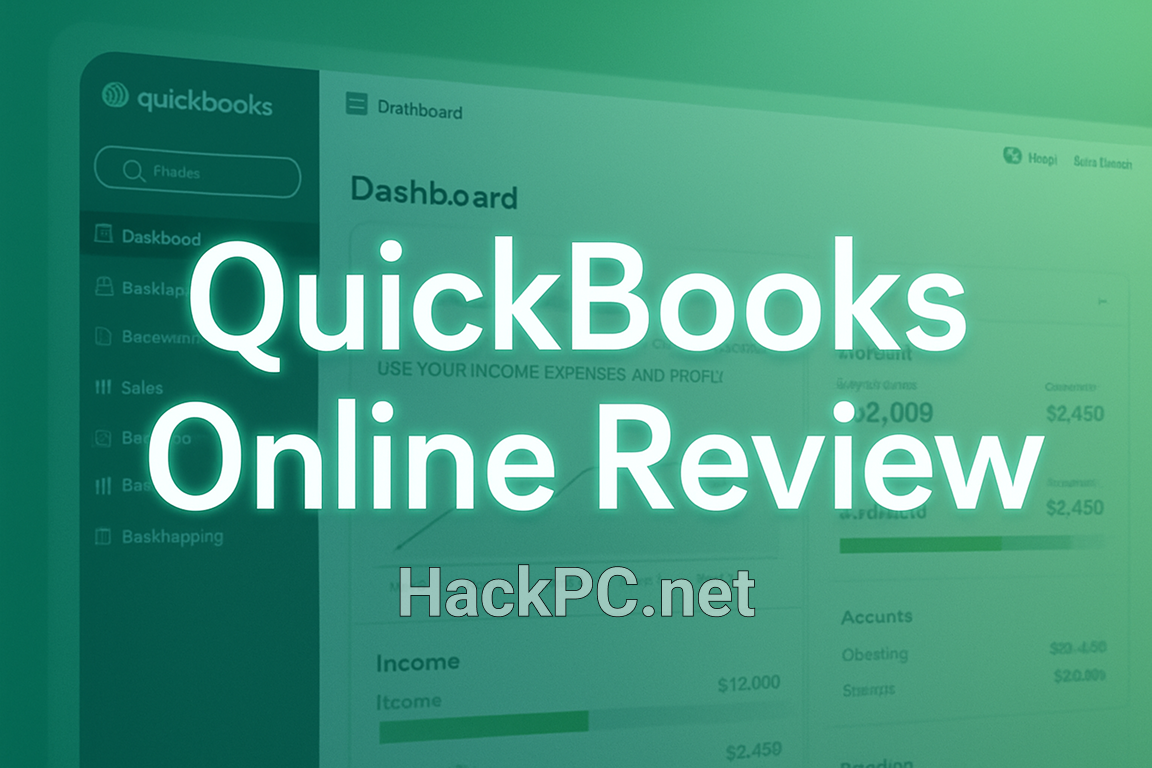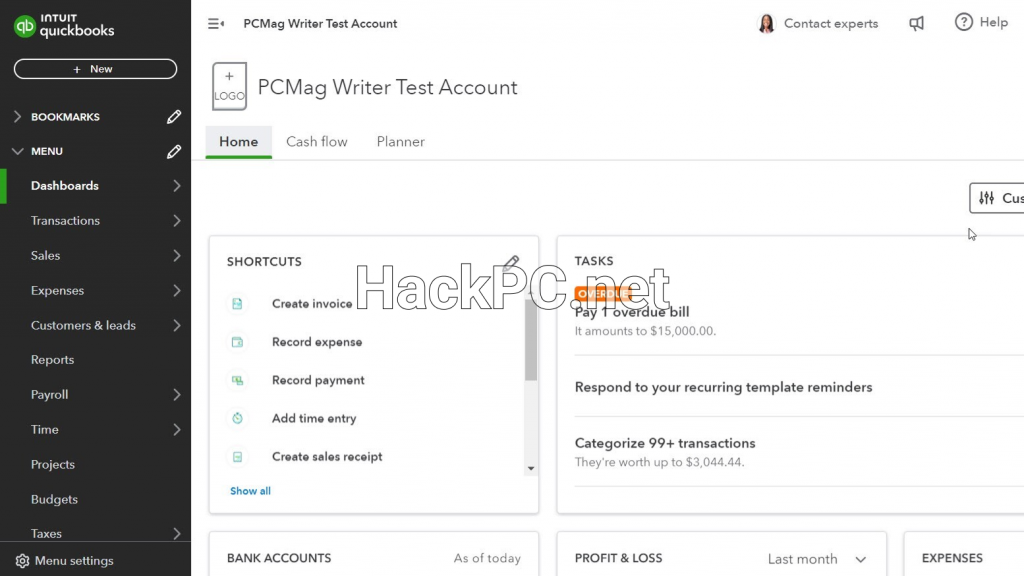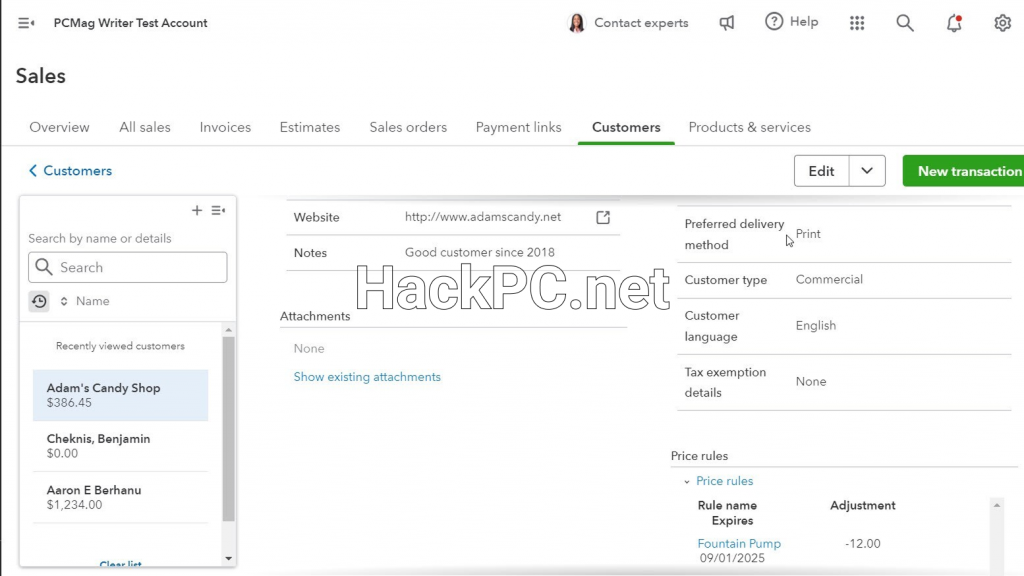
QuickBooks Online has transformed from a simple bookkeeping tool into a comprehensive financial management platform that leverages artificial intelligence to revolutionize how businesses handle their accounting operations. With over 10 million customers worldwide, this cloud-based accounting software continues to dominate the small business market while expanding its enterprise capabilities through innovative AI agents and automation features.
The 2025 iteration represents a significant leap forward, introducing groundbreaking AI-powered capabilities that automate complex workflows, provide real-time financial insights, and create what Intuit describes as a “virtual team” working continuously on behalf of business owners. This comprehensive review examines whether these innovations justify the recent pricing adjustments and how QuickBooks Online compares to emerging competitors in an increasingly crowded marketplace.
Revolutionary AI Integration: Transforming Traditional Bookkeeping
The Rise of Intelligent Automation
The integration of Intuit Assist and AI agents marks a paradigm shift in how businesses approach financial management. These intelligent systems now handle tasks that previously consumed hours of manual work, from transaction categorization to invoice generation. The Accounting Agent, available with the Essentials plan and above, employs machine learning algorithms to analyze spending patterns, recognize recurring expenses, and maintain bookkeeping accuracy with minimal human intervention.
What sets this AI implementation apart is its adaptive learning capability. The system continuously refines its understanding of your business’s unique transaction patterns, improving categorization accuracy over time. According to Better Business Advice, QuickBooks’ Automated Transaction Categorization Agent earned recognition as the best automation tool for bookkeeping accuracy in 2025, demonstrating the platform’s commitment to reducing errors while maximizing efficiency.
Practical AI Applications That Deliver Results
The Payments Agent represents another breakthrough in cash flow management, helping businesses get paid an average of five days faster through predictive analytics and automated reminder systems. This intelligent system analyzes payment history, identifies potential delays, and proactively sends personalized collection reminders tailored to each customer’s behavior patterns.
Perhaps most impressive is the platform’s ability to convert unstructured data into actionable financial documents. Business owners can now forward emails, upload photos of handwritten notes, or scan receipts, and the AI automatically generates professional invoices, estimates, or expense reports. This feature addresses a critical pain point for small business owners who often struggle with administrative tasks while trying to focus on growth and customer service.

Comprehensive Feature Analysis: Beyond Basic Bookkeeping
Core Accounting Capabilities
QuickBooks Online excels in fundamental accounting operations, offering robust tools for managing accounts payable and receivable, bank reconciliation, and financial reporting. The platform’s real-time dashboard provides instant visibility into cash flow, outstanding invoices, and expense trends, enabling data-driven decision-making without waiting for month-end reports.
The expense tracking functionality has matured significantly, with automatic receipt capture and categorization reducing data entry by up to 75%. Mobile app integration ensures that business owners can photograph receipts on the go, with the AI immediately extracting relevant information and filing it appropriately. This seamless mobile accounting experience proves invaluable for businesses with remote teams or frequent travel requirements.
Advanced Financial Reporting and Analytics
The reporting suite offers over 200 customizable templates, covering everything from basic profit and loss statements to complex project profitability analyses. The Advanced plan unlocks sophisticated features like custom user permissions, batch invoicing, and dedicated account management, making it suitable for growing businesses with more complex financial needs.
What distinguishes QuickBooks Online’s reporting capabilities is the integration of predictive analytics. The platform now offers cash flow projections based on historical data and current trends, helping businesses anticipate financial challenges before they become critical. This proactive approach to financial management represents a significant advancement over traditional reactive accounting methods.
Pricing Structure 2025: Understanding the Investment
Current Subscription Tiers
QuickBooks Online’s pricing structure has evolved considerably, with the 2025 rates reflecting both enhanced capabilities and market positioning:
Solopreneur Plan ($20/month, currently $10 for first three months): Designed for freelancers and sole proprietors, this entry-level option includes income and expense tracking, receipt organization, quarterly tax estimation, and basic invoicing capabilities. Limited to one user, it serves as an affordable gateway to professional accounting software.
Simple Start ($38/month, 50% off first three months): Supporting up to two users, this plan adds bank account connections, automated bookkeeping features, and access to the mobile app. It’s ideal for new businesses needing essential accounting tools without overwhelming complexity.
Essentials ($65/month, promotional pricing available): This popular tier accommodates three users and introduces bill management, time tracking, and the AI-powered Accounting Agent. The addition of automated transaction categorization makes this the minimum recommended level for businesses serious about efficiency.
Plus ($115/month with introductory discounts): Supporting five users, the Plus plan adds inventory tracking, project profitability analysis, and advanced reporting capabilities. This tier suits established small businesses with diverse operational needs and multiple team members requiring system access.
Advanced ($275/month): The premium offering includes everything in Plus, enhanced with custom workflows, dedicated support, and advanced analytics. Supporting up to 25 users, it bridges the gap between small business software and enterprise solutions.
Understanding the Price Evolution
The pricing trajectory from 2020 to 2025 reveals significant increases, with some plans rising over 80% during this period. While these adjustments have generated discussion within the business community, Intuit’s investor relations reports indicate that the company is reinvesting heavily in AI development and platform enhancement. The question for potential customers becomes whether the productivity gains and automation capabilities justify the premium pricing.
Integration Ecosystem: Connecting Your Business Tools
Native Integrations and App Marketplace
QuickBooks Online’s strength extends beyond core accounting through its vast integration network. The platform seamlessly connects with over 750 third-party applications, creating a unified business management ecosystem. Popular integrations include payment processors like PayPal and Stripe, e-commerce platforms such as Shopify, and CRM systems including Salesforce.
The recent addition of the Customer Hub, featuring integrated CRM capabilities powered by AI agents, reduces the need for separate customer relationship management tools. This native integration manages leads, tracks customer interactions, and automates follow-up communications, all within the QuickBooks environment.
API Capabilities and Custom Development
For businesses with unique requirements, QuickBooks Online offers robust API access enabling custom integrations and workflow automation. The REST API supports real-time data synchronization, allowing developers to build tailored solutions that extend platform functionality. This flexibility proves particularly valuable for businesses operating in specialized industries or with complex operational requirements.

User Experience: Balancing Power with Accessibility
Interface Design and Navigation
The 2025 interface represents years of iterative refinement, striking an effective balance between comprehensive functionality and user-friendly design. The dashboard presents critical financial metrics through customizable widgets, while the navigation menu logically organizes features based on typical workflow patterns.
New users benefit from the Live Expert Guided Setup, a one-time virtual session with QuickBooks specialists who help configure the system for specific business needs. This onboarding support significantly reduces the learning curve, ensuring businesses can quickly realize value from their investment.
Mobile Capabilities
The mobile application deserves special recognition for its feature parity with the desktop version. Available for iOS and Android devices, the app enables complete financial management from anywhere, including invoice creation, expense tracking, and report generation. The offline functionality ensures productivity continues even without internet connectivity, with automatic synchronization once connection resumes.
Performance Metrics and Reliability
System Uptime and Speed
QuickBooks Online maintains impressive reliability statistics, with 99.9% uptime guaranteed through their service level agreement. Page load times average under two seconds, even when accessing complex reports or processing large datasets. The cloud infrastructure automatically scales to handle peak usage periods, ensuring consistent performance during critical business periods like month-end closing or tax season.
Data Security and Compliance
Security measures include 256-bit encryption for data transmission and storage, multi-factor authentication, and automatic backups. The platform maintains compliance with major regulatory standards including GDPR, SOC 2, and PCI DSS, providing peace of mind for businesses handling sensitive financial information.
Competitive Landscape: How QuickBooks Stacks Up
Versus Traditional Competitors
When compared to established alternatives like Xero or FreshBooks, QuickBooks Online distinguishes itself through superior AI capabilities and a more extensive integration ecosystem. While Xero offers competitive pricing for basic features, it lacks the advanced automation and predictive analytics that define QuickBooks’ 2025 offering.
FreshBooks excels in user interface simplicity but falls short in scalability and advanced reporting capabilities. For businesses anticipating growth or requiring sophisticated financial analysis, QuickBooks provides a clearer upgrade path without platform migration.
Emerging Challengers and Market Position
New entrants leveraging AI-first approaches pose interesting competition, but QuickBooks’ established market presence, extensive partner network, and proven reliability create significant competitive advantages. The platform’s ability to serve businesses from startup through enterprise scale, combined with continuous innovation investment, maintains its market leadership position.
Real-World Implementation: Success Stories and Challenges
Small Business Transformation
Consider the experience of Zhi Bath & Body, whose owner reports saving significant administrative time through AI-powered invoice generation and automated bookkeeping. The ability to focus on product development and customer relationships rather than manual data entry exemplifies the transformative potential of intelligent automation.
Common Implementation Challenges
Despite its strengths, some businesses encounter challenges during implementation. The learning curve for advanced features can prove steep, particularly for users without accounting backgrounds. Additionally, businesses with highly specialized workflows may find certain automation features require extensive customization to match their processes.
Customer Support and Resources
Support Channels and Availability
QuickBooks Online offers tiered support based on subscription level, with Advanced plan users receiving priority 24/7 assistance. The support ecosystem includes live chat, phone support, and an extensive knowledge base containing tutorials, webinars, and community forums. The quality of support generally receives positive feedback, though response times can vary during peak periods.
Educational Resources and Training
The QuickBooks Training portal provides comprehensive learning materials, from basic bookkeeping principles to advanced feature utilization. The ProAdvisor program offers certification opportunities for accounting professionals, creating a network of qualified consultants who can assist with implementation and optimization.
Return on Investment Analysis
Quantifiable Benefits
Businesses typically report time savings of 10-15 hours monthly through automation features alone. The improved accuracy in financial reporting reduces costly errors, while faster payment collection directly impacts cash flow. When considering these benefits against subscription costs, most businesses achieve positive ROI within three to six months.
Hidden Value Propositions
Beyond direct time savings, QuickBooks Online delivers value through improved financial visibility, better decision-making capabilities, and reduced stress during tax season. The platform’s ability to scale with business growth eliminates future migration costs and disruption, representing significant long-term value.
Future Outlook: What’s Next for QuickBooks Online
Announced Enhancements
Intuit’s product roadmap indicates continued AI advancement, with Marketing and Sales Agents launching later in 2025. These additions will further automate customer acquisition and retention processes, creating an integrated business growth platform beyond traditional accounting.
Industry Trends and Implications
The shift toward AI-driven financial management appears irreversible, with QuickBooks positioning itself at the forefront of this transformation. As machine learning capabilities mature, expect increased automation of complex accounting tasks, potentially reducing the need for manual bookkeeping while elevating the strategic role of financial professionals.
Verdict: Is QuickBooks Online Right for Your Business in 2025?
Ideal User Profile
QuickBooks Online proves optimal for small to medium-sized businesses seeking comprehensive financial management with minimal manual effort. Companies valuing automation, requiring robust reporting capabilities, and anticipating growth will find the platform particularly compelling. The AI features deliver maximum value for businesses processing high transaction volumes or managing complex customer relationships.
Scenarios Where Alternatives Might Suit Better
Very small businesses or freelancers with simple needs might find the Solopreneur plan limiting and other plans expensive. Companies requiring highly specialized industry features or those with extremely complex multi-entity structures might need more specialized enterprise resource planning solutions. Additionally, businesses uncomfortable with cloud-based systems or requiring complete offline functionality should consider desktop alternatives.
Final Recommendations
QuickBooks Online 2025 represents a mature, powerful platform that successfully balances advanced capabilities with usability. While pricing increases may concern budget-conscious businesses, the productivity gains from AI automation and the comprehensive feature set justify the investment for most growing companies.
Start with a 30-day free trial to evaluate fit with your specific workflows. Consider beginning with the Essentials plan to access AI capabilities, upgrading as your business grows. Invest time in proper setup and training to maximize value realization. Most importantly, embrace the automation features rather than maintaining manual processes—the true value of QuickBooks Online 2025 lies in its ability to transform how you manage financial operations.
For businesses ready to modernize their accounting processes and leverage AI for competitive advantage, QuickBooks Online delivers a compelling solution that continues to evolve with technological advancement and changing business needs. While not without its challenges, the platform’s proven track record, continuous innovation, and comprehensive ecosystem make it the benchmark against which other cloud-based accounting software must be measured.



Comments (0)